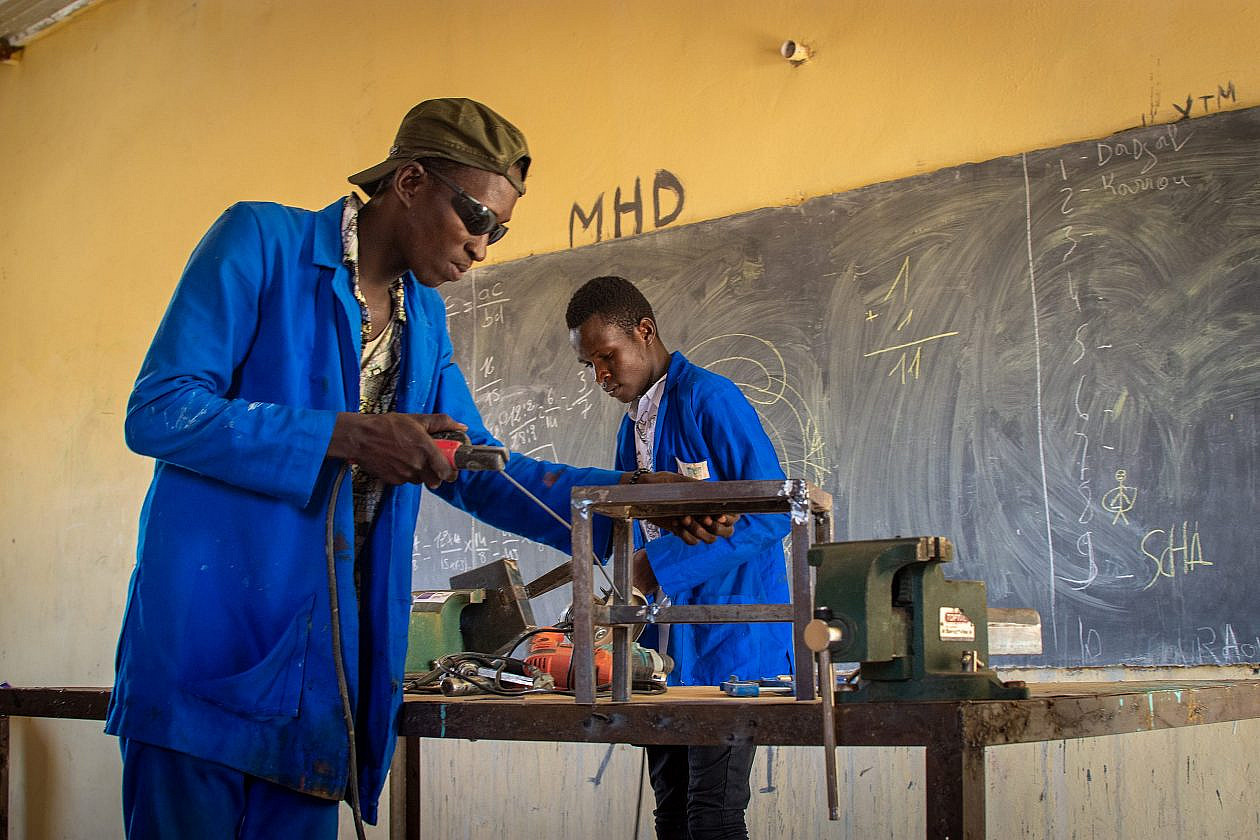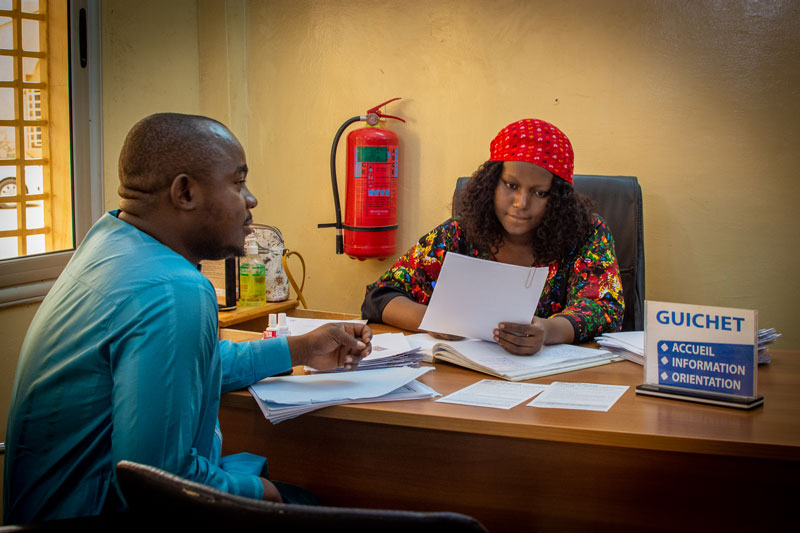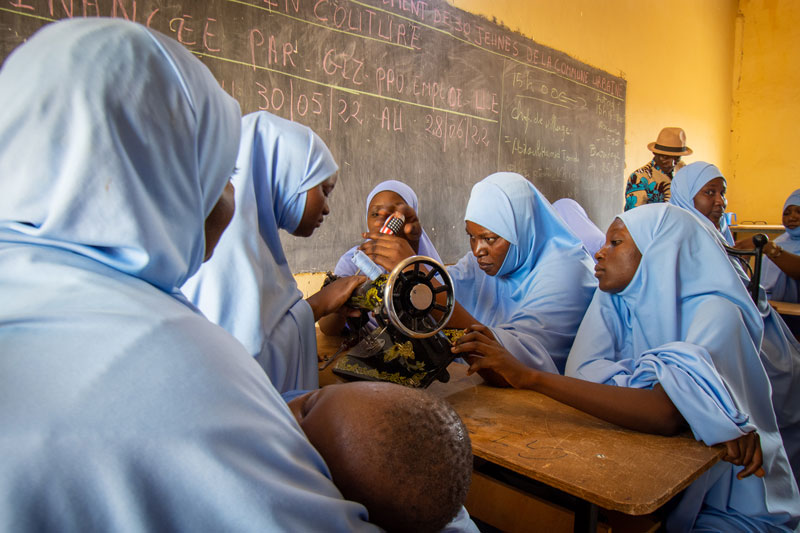“All interventions in Niger must address the needs of young people to contribute to development and stabilisation”
Andreas König has been GIZ’s Resident Director in Niger for the past three years. In this interview, he discusses the place of young people within GIZ’s interventions in the country and shares his vision of the dynamic being built within the Sahel Alliance with the Nigerien authorities.

What are GIZ’s areas of intervention in Niger?
GIZ’s priority areas of intervention in Niger were decided by the Nigerien and German governments. At present, they are decentralisation and local development, agriculture, youth employment and basic education. We also have a transitional aid programme and activities in the context of national migration legislation, as well as a project to support the Ministry of Planning in public finance management.
What is the role of young people in the work of your teams?
Young people make up the largest part of the Nigerien population. All interventions here in Niger – not only those of GIZ – must therefore meet the needs of young people in order to contribute to the development and stabilisation of the country. Because if young people remain without perspectives, there will be no security or stability in this country.
Our “Youth Employment Promotion” programme has an objective directly related to youth development. Its aim is to find medium- and long-term prospects for young girls and boys to earn a living and at the same time make a contribution to the development of their community.

What role does the private sector play in GIZ’s approach in Niger?
We have a big advantage; we are really on the ground. GIZ traditionally follows a three-pronged approach:
- At national level, with discussions and capacity building of government structures
- Atthe meso level,we collaborate with public and private civil society institutions to strengthen the capacity of these institutions to provide services
- and finally, we work directly with businesses, youth, target groups on the ground in the pre-selected regions.
The private sector in Niger is not yet very strong. But we need a strong private sector to be able to really develop the economy and create options for young people in the medium and long term. At the meso level, we work with institutions such as business houses that are now established in all of Niger’s regions. In agriculture, we work with the chambers of agriculture, which are the representatives of the agricultural sector. We assist them so that they can play their part in the development of their sector.

What are the priority regions for your office?
The German and Nigerien governments have chosen 3 priority regions for their bilateral cooperation: Agadez, Tahoua and Tillabéri. Unfortunately, the last two are among the regions most threatened by violence, destabilisation and terrorist acts. Our objective is to ensure that state services maintain their presence in these regions because if the population feels that the state services are present, they are ready to get involved.
What is the current dynamic of the Sahel Alliance in Niger?
The Sahel Alliance provides an opportunity, not only for GIZ and German cooperation, but for all actors, to achieve a more coordinated response with more impact for Nigerien society. There is room for improvement, but in recent months, thanks to the active engagement of the Spanish Ambassador to Niger, we have made progress in better leveraging potential synergies.
We still have an important task ahead of us, that of involving the Nigerien side better. Up until now, the Nigerien perception of the Sahel Alliance has often been that it is an action led by technical and financial partners or capitals in Europe. But I am now optimistic, because the two new spokespersons of the Sahel Alliance in Niger met with the Minister of Planning to better inform and involve the Nigerien side, and to ensure and to ensure that the Sahel Alliance’s added value for Niger is achieved through joint action.

What gives you hope for the future of the country?
Everywhere I look, I see the resilience of the Nigerien people. They are ready to commit themselves, they are resilient in the sense that they can overcome enormous challenges. And there are some in this country. The second point is that with the President’s current leadership, we are touching on important issues, such as demography or the role of women in development. He is committed, despite the obstacles that exist in a traditional culture. And now Niger is without doubt a symbol of hope in the Sahel. With this special attention, we can create progress, we can create development in the months and years to come.
Go further:

